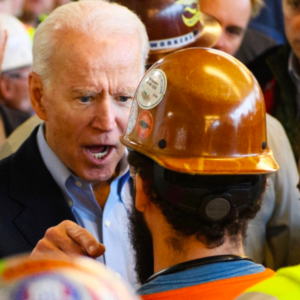In 2016, Hillary Clinton made a gaffe that might have cost her the White House.
She said at an Ohio campaign stop, “We’re going to put a lot of coal miners and coal companies out of business.”
Months later, Clinton would lose Pennsylvania, Michigan, and Wisconsin to Donald Trump, and gave Republicans the right to call themselves the party of the working class.
Biden turned those states blue again in 2020, as energy development took a back seat to the hyper-manic news coverage that we have all accepted as the new normal: Russia, COVID, riots, election fraud, impeachment(s), sedition, and who knows what gets added to the list tomorrow?
But while Democrats are branding Biden as a return to the middle, he may be even more extreme on American energy development than either Clinton or his former boss, Barack Obama. In his first week in office, he killed the Keystone XL pipeline and thousands of energy-sector jobs along with it.
His energy czar, former Massachusetts John Kerry, was widely criticized for telling oil rig workers and energy-sector pipe fitters they can just get new jobs installing solar panels — a comment that to some seemed to echo Hillary’s infamous gaffe.
Chewing over that moment in her book “What Happened,” Clinton said she was only trying to explain that America’s energy renaissance would render coal obsolete, not that she wanted to push coal miners out of a job. She wrote, “… changes in mining technology, competition from lower-sulfur Wyoming coal, and cheaper and cleaner natural gas and renewable energy, and a drop in the global demand for coal…” would mean we just didn’t need coal as much. In her book, at least, Clinton seemed content to let the market evolve.
Obama took a few significant steps to slow coal’s roll. He imposed rules requiring coal plants to do more to filter toxic materials from wastewater. And at the very end of his last term, Obama imposed a three-year delay to new coal leases on federal land – a significant move given that nearly half of all U.S.-produced coal comes from federally-managed land.
Now Biden has doubled down, ordering a stop to oil and gas leasing on public lands and in public waters.
As a candidate, Biden promised no new oil and gas development on federal lands or federally-controlled waters. Gone is the soft spot for America’s “cleaner energy” boom – Biden said in his second debate with Trump that he would actively “transition away from the oil industry” altogether.
If Biden backs up those words with action, it might be much more noticeable than Obama’s attempts to end the coal industry, an effort quickly reversed by Trump. Fossil fuels are still used to generate nearly two-thirds of America’s electricity, and the biggest source is natural gas. About a quarter of U.S. oil production comes from federal land – ending new development could force the U.S. to scramble for supply at some point in the future.
Some companies have reacted to the threat by promising to reduce their emissions, perhaps as a way of bargaining for leniency with Biden. But either way, consumers could start feeling the pinch.
And it’s not clear Biden’s team will be in the mood to bargain. He nominated Rep. Deb Haaland, D-N.M., to be his secretary of the interior. Environmentalists have high hopes for Haaland, and while she has not been specific, it seems clear she’s aiming to please them.
“I’ll be fierce for all of us, our planet, and all of our protected land,” Haaland tweeted after Biden announced he wants her on his team.
For the Environmental Protection Agency, Biden has chosen North Carolina’s top regulator Michael Regan. Here’s how the Washington Post described him:
“Regan forged a multibillion-dollar settlement over cleanups of coal waste with Duke Energy, established an environmental justice advisory board, and reached across the political divide to work with the state’s Republican legislature. In another high-profile case, the state ordered the chemical company Chemours to virtually eliminate a group of man-made chemicals from seeping into the Cape Fear River.”
Ironically, putting limits on oil and gas could end up helping coal, especially if Biden’s actions make natural gas a little less competitive. But many believe coal is facing structural problems, such as decreased demand from China, that are beating down the industry as much as any regulation could.
“The long-term outlook for coal is dire,” Rob Godby, a University of Wyoming economist, recently told the Casper Star-Tribune.
Energy companies, at least, seem to notice the box canyon they’re entering with the Biden administration. In the last few weeks, they have been securing drilling permits that they hope will let them weather what promises to be a storm of new regulatory hurdles to energy development, backed by what may be the most liberal, environmentally-minded government America has ever seen.

